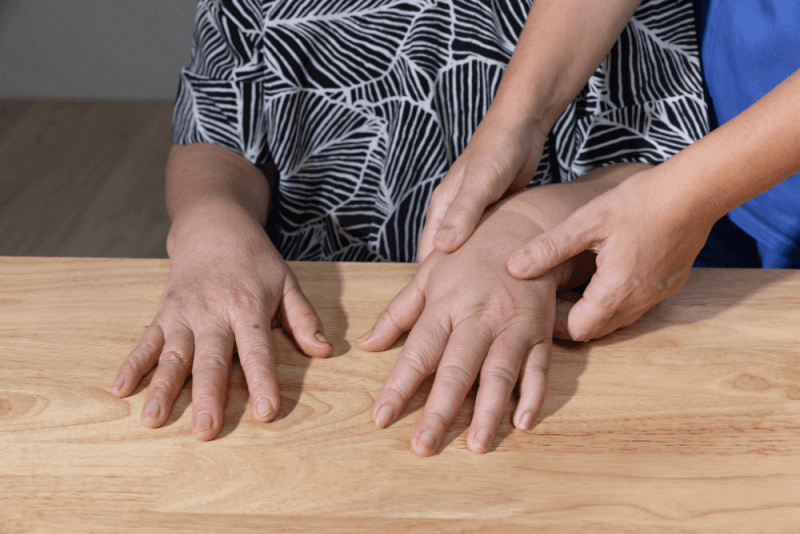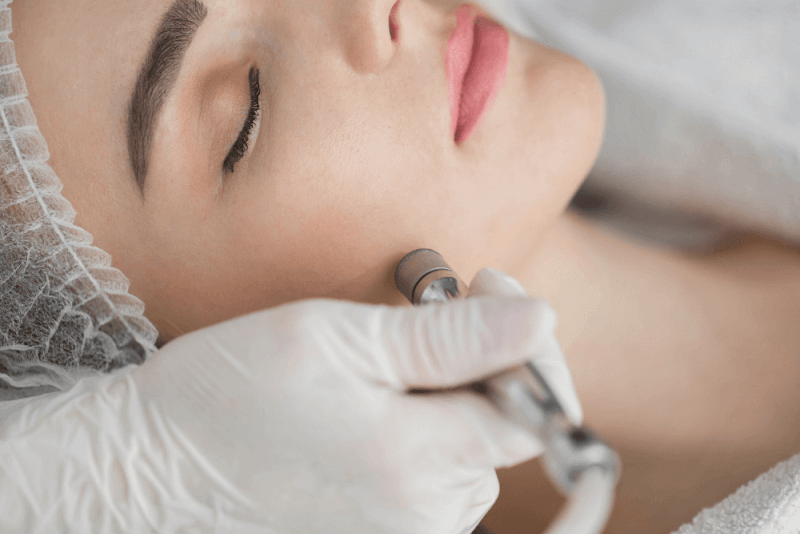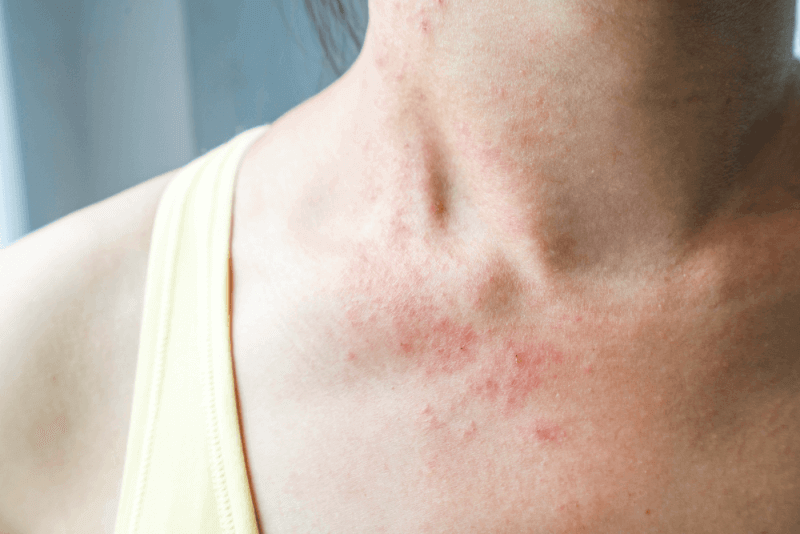30-Second Summary
- Steven Johnson syndrome is a rare and serious medical condition that affects the skin and mucous membranes.
- The exact cause is unknown, but certain medications, infections, and genetic factors can increase the risk.
- Symptoms include painful skin rashes, fever, cough, sore throat, and swelling of the lips.
- In severe cases, large areas of skin tissue can die, which may lead to death.
- Treatment for the syndrome varies depending on the severity of the symptoms. In mild cases, patients may take oral steroids and pain relievers. In severe cases, hospitalization may be necessary.
What is Steven Johnson Syndrome?
The mucous membrane is the soft tissue lining found throughout the digestive system, from the mouth to the anus, as well as in the genital system and eyes. Stevens Johnson syndrome is a condition that affects the mucous membrane, skin, and genital organs. Although rare, it presents a serious clinical picture.
The cause of Steven Johnson syndrome is usually the side effects of certain medications. In addition, some infections can also cause the condition to appear.
The initial symptoms of the disease resemble those of the flu. However, as it progresses, it causes blisters and red and purple rashes that spread increasingly. Eventually, the affected skin tissue dies and peels away.
Steven Johnson syndrome is a medical emergency treated in burn units or intensive care units of hospitals. The treatment approach varies depending on the underlying cause.
Erythema multiforme is a disease caused by chest infections and the herpes virus, which shares similar features with Steven Johnson syndrome, but with a milder clinical presentation.
Symptoms of Steven Johnson Syndrome
The most characteristic symptom of Steven Johnson syndrome is skin pain. The symptoms that appear during the early stages of the disease, which starts with flu-like symptoms, include:
- Cough,
- Joint pain,
- Headache,
- Fever of 38 degrees Celsius,
- General feeling of unwellness,
A few days after these symptoms appear, additional symptoms caused by the disease begin to emerge. The advanced stage symptoms include:
- Dark-centered lesions with lighter edges, appearing one by one,
- No itching,
- Lesions multiply rapidly within a few days or hours,
- Large blisters begin to form in the next stage,
- After the blisters burst, painful sores are left behind,
- Swelling of the face,
- Swelling of the lips and the formation of crusty sores,
- Blisters also form in the mucous membrane of the mouth, throat, and genital area, leading to ulcers,
- Dehydration,
- Eye involvement,
- Corneal ulcers,
In children, the causes of Steven Johnson syndrome are usually:
- Epstein-Barr virus, which causes glandular fever,
- Coxsackie virus, which causes Bornholm disease,
- Herpes virus, which causes cold sores,
- Common cold,
- Mumps,
- Rarely, some bacterial infections,
In adults, Steven Johnson syndrome is usually a side effect of medications. The most common drugs associated with this side effect include:
- Sulfasalazine,
- Sertraline,
- Sulfamethoxazole and other sulfa antibiotics,
- Phenytoin,
- Phenobarbital,
- Piroxicam,
- Nevirapine,
- Lamotrigine,
- Carbamazepine,
- Allopurinol,
Risk Factors for Steven Johnson Syndrome
Certain factors can increase the risk of the rare Steven Johnson syndrome. These risk factors include:
- Viral infections,
- Weakened immune system (HIV, AIDS, autoimmune diseases, chemotherapy, organ transplantation, etc.)
- A history of Steven Johnson syndrome,
- A family history of Steven Johnson syndrome,
- Certain genes have been identified that increase the risk of Steven Johnson syndrome in some individuals.
How is Steven Johnson Syndrome Diagnosed?
Steven Johnson syndrome is diagnosed by dermatologists. The diagnosis is usually made based on a physical examination, symptoms, and medical history. To confirm the diagnosis, a skin biopsy may be taken.
Treatment of Steven Johnson Syndrome
Steven Johnson syndrome must be treated as soon as possible. Otherwise, the symptoms can progress rapidly and become life-threatening. If the disease presents a severe clinical picture, patients are treated in burn or intensive care units. Patients must also stop taking the medications they were using. However, in some cases, it may not be possible to identify which drug caused Steven Johnson syndrome. In such situations, all medications the patient is taking must be discontinued. During treatment, therapies are administered to alleviate the symptoms.
Pain Relievers
Steven Johnson syndrome causes severe skin pain. Strong pain relievers are used to alleviate this pain.
Cold and Moist Compresses Applied to the Skin
The dead skin layer that forms after blisters is gently cleaned, and then a sterile dressing is applied.
Moisturizers
Cold moisturizers are continuously applied to the skin.
Fluid Replacement
To prevent dehydration and ensure proper nutrition, patients are fed through a feeding tube.
Mouthwash
Antiseptic or anesthetic mouthwashes are used to temporarily numb the inside of the mouth and help patients swallow.
Corticosteroids
Corticosteroid treatment is administered orally or topically to control skin inflammation.
Antibiotics
Antibiotics are included in the treatment if sepsis is suspected.
Eye Drops
Eye drops are used to treat the eye symptoms of Steven Johnson syndrome.
Once the cause of Steven Johnson syndrome is identified and stopped, the skin reaction will also stop. New skin tissue starts to grow within a few days. However, it may take weeks or even months for Steven Johnson syndrome to fully heal. The severity of the disease determines the recovery time. Patients may still feel fatigued for several weeks after discharge.
Complications of Steven Johnson Syndrome
Steven Johnson syndrome, which severely affects the skin and mucous membranes, can lead to certain complications. These complications include:
- As the skin at the site of the wounds regrows, changes in skin color may occur. Although rare, some patients may be left with scars.
- It can lead to more serious infections such as cellulitis and sepsis.
- It can cause inflammation of internal organs, leading to conditions such as hepatitis or pneumonia.
- It can result in corneal ulcers or blindness.
- Scar tissue accumulation in the vaginal area can cause narrowing.
- Scarring may occur on the penis.
How to Prevent Steven Johnson Syndrome?
If Steven Johnson syndrome occurs due to a reaction to a drug, patients must avoid that drug and drug group for the rest of their lives. If there is a genetic predisposition in the family, it is recommended that other family members also avoid using the same drug group. To avoid a recurrence of Steven Johnson syndrome, symptoms should be closely monitored. People of Southeast Asian, Chinese, and Indian descent should undergo genetic testing before using drugs like carbamazepine and allopurinol.










